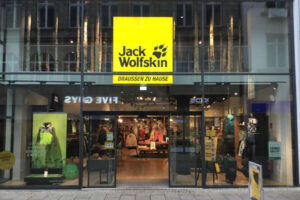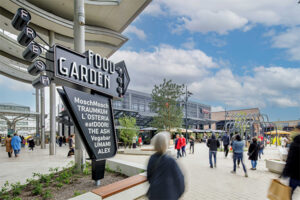By Nicole Pötsch
More than 50 percent of our €71 billion global real estate portfolio is comprised of offices, so, naturally, we are concerned with the “office of the future”, following the Covid-19 pandemic. We are convinced that offices that focus on the individual user’s experience and well-being, that offer additional services as part of mixed-use constellations, that are operated in a sustainable manner, that are smart and offer digital connectivity, and that are centrally located will be the most sought-after buildings of the future. That issue is something that we started to work on prior to the Covid-19 outbreak; the pandemic has simply served as a catalyst and has brought greater attention to such office types.
Given the size of Allianz’s office portfolio, “mixed-use” would entail office use as our primary offering. Therefore, an attractive investment proposition might consist of a campus-style office with additional functions, such as co-working space, a hotel, a fitness center, a supermarket, and a restaurant/café – in other words, a “work-live-play” combination. There is no precise definition as to what exactly is meant by mixed-use and what percentage should be allocated to each use. The crucial element is ensuring that the overall configuration meets the needs of tenants, investors, and the community surrounding the property.
Forward Purchase Investments
One trend, particularly with regard to mixed-use offices, is to allocate part of the office space to flexible office concepts, such as co-working. Traditional landlords can learn from the inherent flexibility of the co-working concept, specifically in terms of the variety of lease options available and the ability for tenants to increase or decrease space at short notice. The forward purchase investments that we have made with EDGE Technologies over the past 18 months – EDGE HafenCity in Hamburg, EDGE East Side in Berlin, and EDGE Forum in Amsterdam – will, when completed, offer a mix of flexible co-working alongside more traditional, long-term leased office space.
In my opinion, a mixed-use investment project does not involve increased risk compared to single-use buildings – it may even offer slightly lower risk due to the diversification within the property. The COVID-19 pandemic has made it very clear that more caution needs to be exercised when planning a mixed-use property due to local demand.
Looking ahead, I see many more mixed-use products entering the market, which is a clear indicator that today’s higher expectations are being translated into real estate. It is certainly a primary focal point for my team to acquire such properties or to acquire them as part of a forward-purchase deal. The ability to provide the right work-live-play balance, in a way that positively impacts the occupant experience, will lead to greater employee satisfaction and, in turn, higher tenant retention, thereby providing us with a more competitive product in the long run – which is the ultimate goal as a long-term investor.





